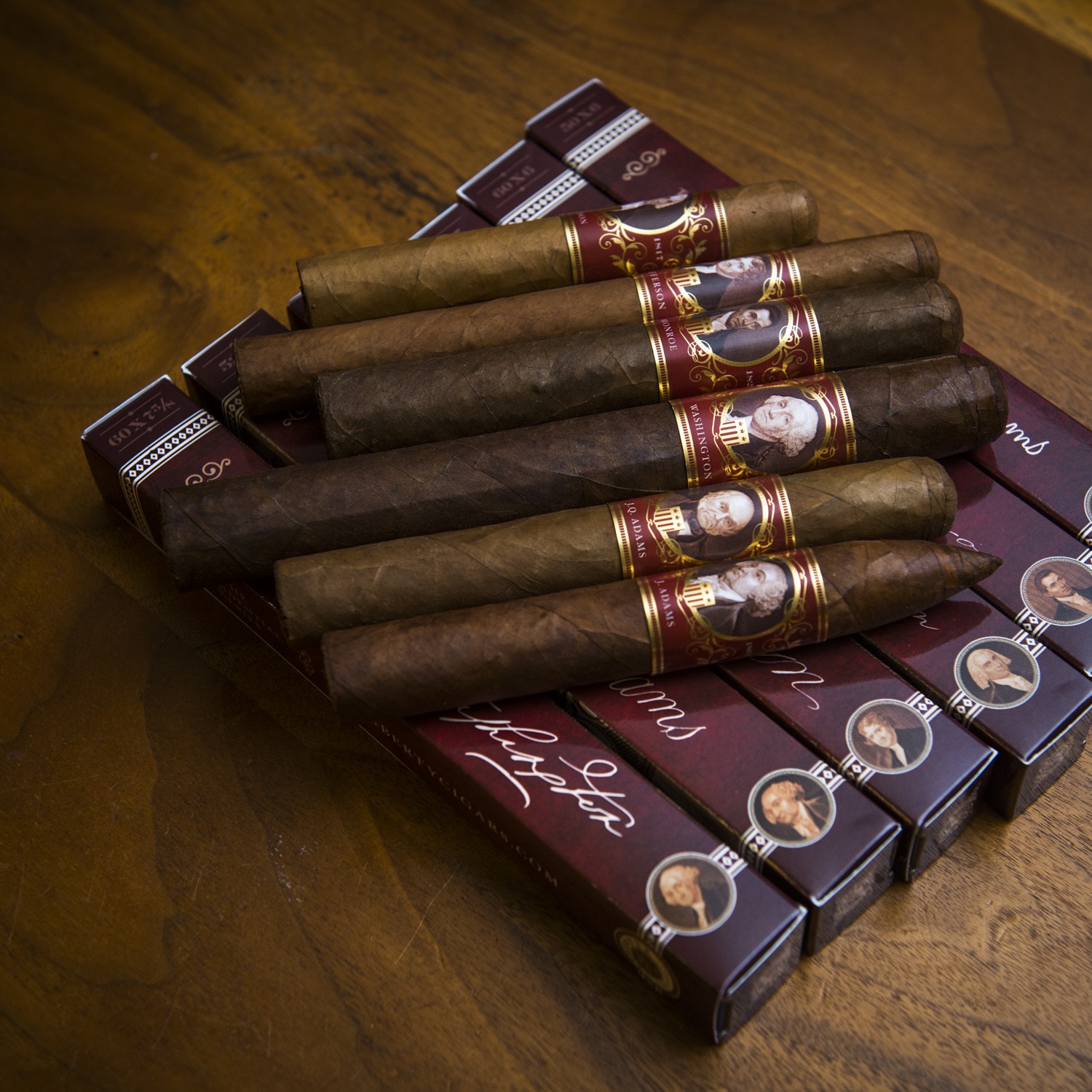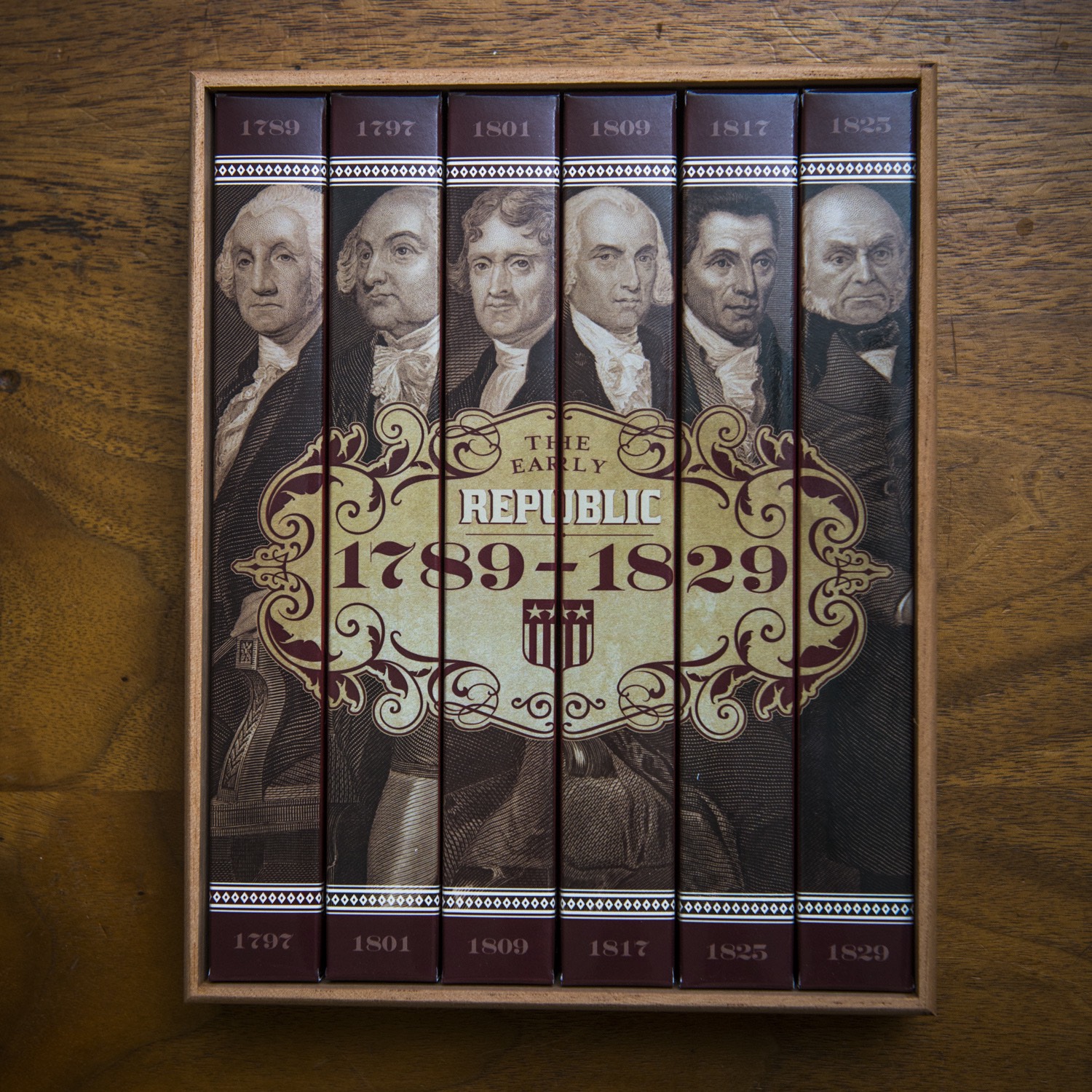James Monroe
1817-1825
Vitola
Gordo
Size
60 x 6
Body
Medium-Full
Wrapper
Brasil
Binder
Honduras
Filler
Cuban Seed Ligero / Dominican / Nicaraguan / Santa Domingo / Habano
President James Monroe (1817-1825)
James Monroe dropped out of The College of William and Mary to enlist in the 3rd Virginia Regiment to fight in the War for Independence. The mere fact of his year in college and his ambition to be a leader of men, resulted in his promotion to First Lieutenant. His first real action came after the icy crossing of the Delaware River on Christmas Eve in 1776. The story is told of a local surgeon who had been aroused by his barking dog and joined the march in Monroe’s company. In the midst of the attack on Trenton, young Monroe was shot down with an artery severed. The providential surgeon rushed to his side and stemmed the bleeding enough for his survival. Upon Monroe’s recovery the army promoted him to Major, and by the end of the war he held the rank of Colonel. The almost fatally wounded eighteen year old college student would someday become the fifth President of the United States.
James spent much of his youth working on the family farm in rural Virginia. No doubt his paternal Scottish immigrant ancestors (1650) and French Huguenot maternal ones (1700) both brought single-minded and successful hard physical farm labor and creative skills to the Virginia frontier. Both of Monroe’s parents died before he was sixteen and he took over the care of his four siblings. A sympathetic uncle paid for his enrollment at William and Mary, which lasted but a year when he joined the war against Britain.
Like so many of the Virginia Founders, Monroe’s life intertwined with men who would engineer, refine, and serve the United States for decades. He shared a hut at Valley Forge with his childhood friend John Marshall, later Chief Justice of the Supreme Court, received recommendations for promotion from George Washington and Alexander Hamilton and developed a close friendship with the Marquis de Lafayette and Thomas Jefferson, under whom he studied law. James Monroe’s political career followed a trajectory that few would match in American history: Continental Congressman, United States Senator, Minister to France, Minister to Great Britain, Governor of Virginia, Secretary of State, Secretary of War, and President of the United States.
Monroe was a “strict constructionist” of the Constitution and opponent of the Federalists, whom he believed wanted to impose a despotic central government on the states. He tended to favor France over Britain in foreign affairs; he dined with Napoleon after negotiating the Louisiana Purchase Treaty in 1803. He effectively crushed the Federalist Party forever during his Presidency, ushering in what have been known as “the era of good feelings.”
The policy that has marked James Monroe’s presidency the most, related to foreign policy, a field in which he excelled by experience, and for which he developed a team headed by his Secretary of State John Quincy Adams. In his State of the Union address to Congress in 1823 Monroe articulated the policy of the United States, composed by Adams for him, that
“As a principle in which the rights and interests of the United States are involved, that the American continents, by the free and independent condition which they have assumed and maintain, are henceforth not to be considered as subjects for future colonization by any European powers. . . We owe it, therefore, to candor and to the amicable relations existing between the United States and those powers to declare that we should consider any attempt on their part to extend their system to any portion of this hemisphere as dangerous to our peace and safety. With the existing colonies or dependencies of any European power, we have not interfered and shall not interfere. But with the Governments who have declared their independence and maintained it, and whose independence we have, on great consideration and on just principles, acknowledged, we could not view any interposition for the purpose of oppressing them, or controlling in any other manner their destiny, by any European power in any other light than as the manifestation of an unfriendly disposition toward the United States.”
These views served as the basis of American foreign policy until the First World War, and then recast in the 1920s to last until World War II.
Historian James Lucier best summarized James Monroe: [He was] always on the scene of action, always putting his life and property on the line, always writing in the heat of battle, plunging into treacherous diplomatic maneuver, or fighting against dubious political opponents for the fundamental principles of liberty and his country . . . For Monroe, the development of liberty was a world-wide event, and he was at every scene writing perceptive accounts of what he saw, or arguing closely defined points of history or law.



